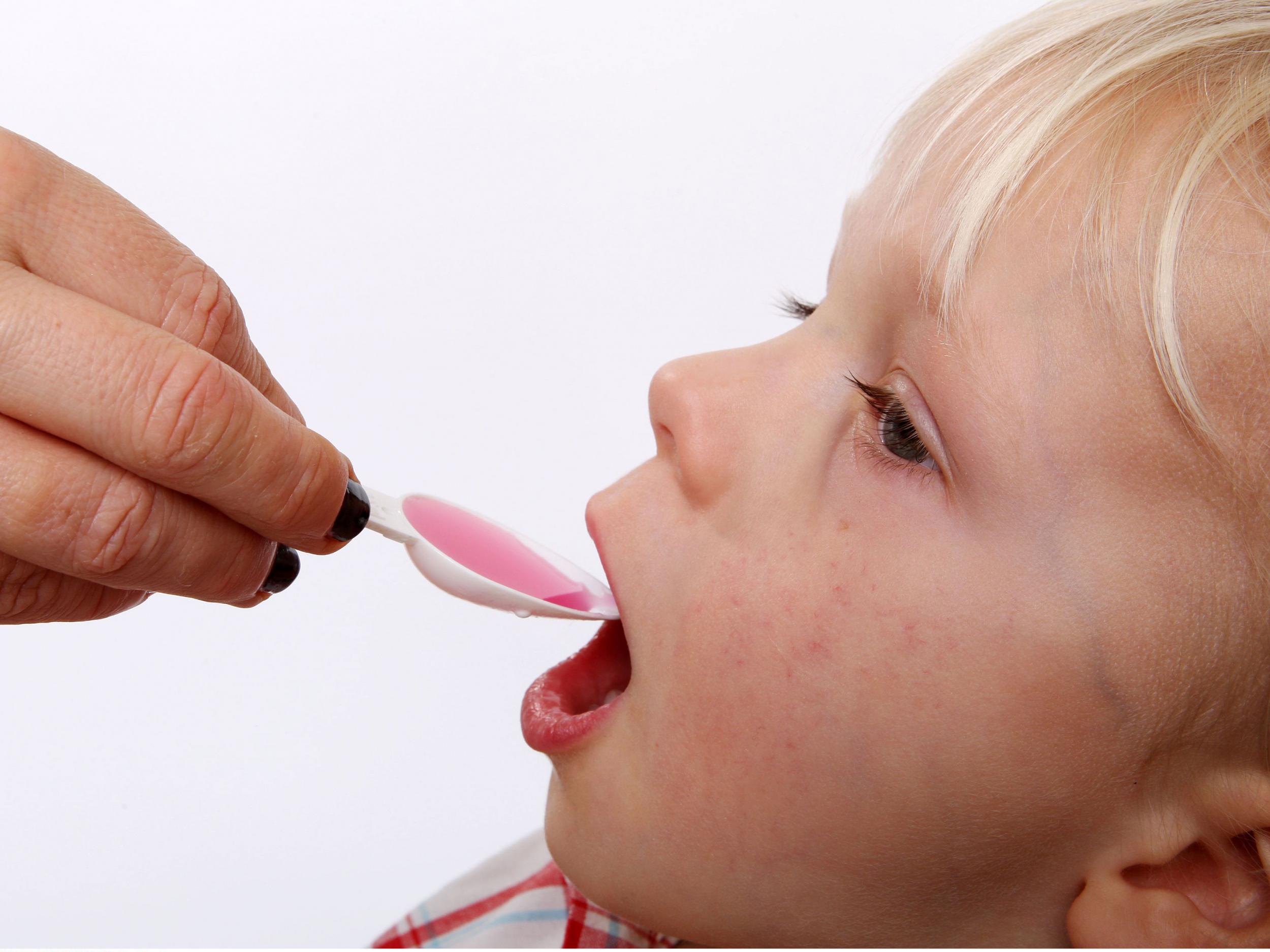Your support helps us to tell the story
From reproductive rights to climate change to Big Tech, The Independent is on the ground when the story is developing. Whether it's investigating the financials of Elon Musk's pro-Trump PAC or producing our latest documentary, 'The A Word', which shines a light on the American women fighting for reproductive rights, we know how important it is to parse out the facts from the messaging.
At such a critical moment in US history, we need reporters on the ground. Your donation allows us to keep sending journalists to speak to both sides of the story.
The Independent is trusted by Americans across the entire political spectrum. And unlike many other quality news outlets, we choose not to lock Americans out of our reporting and analysis with paywalls. We believe quality journalism should be available to everyone, paid for by those who can afford it.
Your support makes all the difference.Parents have been warned that giving children paracetamol-based medicines such as Calpol and Disprol too often could lead to serious health issues later in life.
Leading paediatrician and professor of general paediatrics at University College London, Alastair Sutcliffe, said parents were overusing paracetamol to treat mild fevers. As a result, the risk of developing asthma, as well as kidney, heart and liver damage is heightened, according to the Sunday Times.
Mr Sutcliffe said: “Parents are using paracetamol too permissively. They seem to fear fever as an illness, per se, which it is not. There is evidence that the excess usage of paracetamol is associated with increased rates of asthma, increased rates of liver damage, but less widely known, kidney and heart damage.”
The Royal Pharmaceutical Society (RPS), which backs Mr Sutcliffe, said parents needed to be better educated about when to give children paracetamol-based medicines. The Royal College of Paediatrics and Child Health (RCPCH) also supports his statement.
Steve Tomlin, pharmacist and spokesperson for the RPS, said a common mistake is continuously using the painkiller at high doses.
“Children often go from one care setting to another – with the grandparents, or school – and the chances of them getting extra doses might be quite high,” he said.
“You only need two or three days giving an extra dose or two above what is recommended and it is not such a safe drug and can start hitting the liver.”
Paediatrician and spokesperson for the RCPCH Helen Sammons said a higher temperature that comes with a mild fever is not a bad thing, but a sign of the body fighting the infection.
“Paracetamol is very good to treat the discomfort and pain [for example, from an ear infection] whereas you shouldn’t necessarily give it because a child has a temperature,” she said.
Parents are advised to rely less on thermometers, which may be inaccurate, when detecting fever in children and to pay more attention to their behaviour. Lethargy and lack of thirst are common symptoms of a fever.
Celebrity doctor and expert advisor for Calpol, Dr Ellie Cannon, advises parents to treat fevers by keeping children hydrated and giving them painkillers if the child is "uncomfortable or distressed". "Always be sure to read the instructions, give the age appropriate treatment and stick to the correct dosage," she writes.

Join our commenting forum
Join thought-provoking conversations, follow other Independent readers and see their replies
Comments